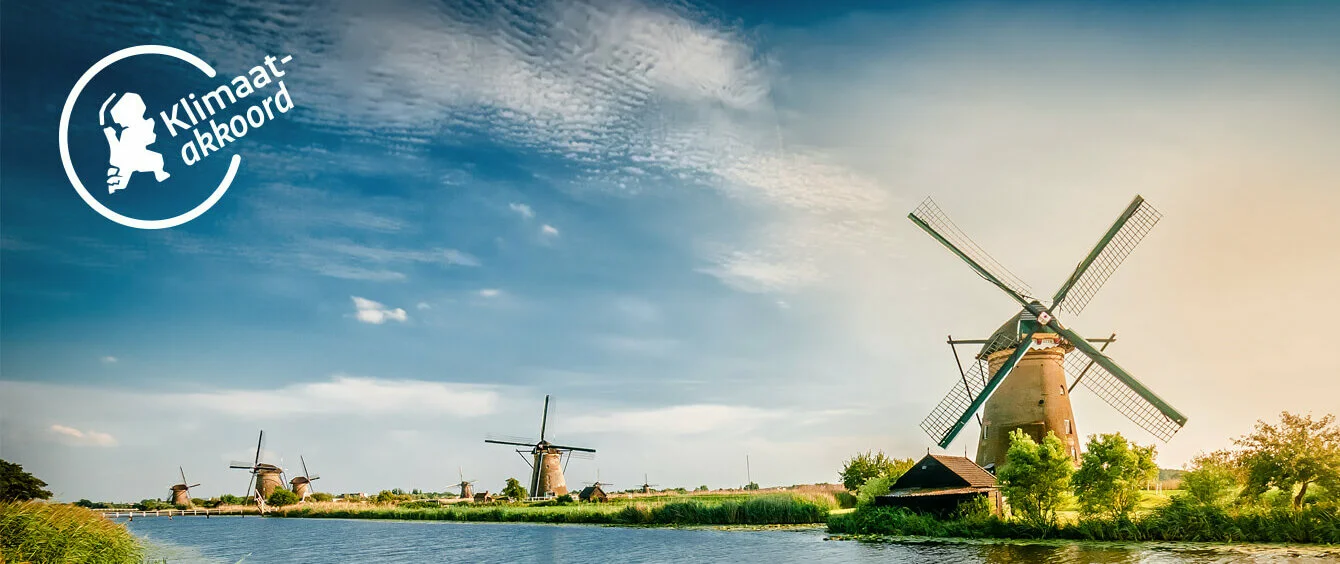After four months of negotiations with dozens of parties, the broad outline of a Dutch Climate Agreement was announced on 10 July. The en:former explains the most important questions regarding the new agreement.
Ed Nijpels, Chairman of the Dutch Climate Board explained the during a packed press conference. RWE is positive about the outcome but warns that a great deal of work still has to be done before an agreement can be reached.
The Climate Board has coordinated and supported the discussions that have taken place around five different sector bodies: Electricity, Built Environment, Industry, Mobility and, finally, Agriculture & Land Use. The broad outline was contained in an 89-page report that was handed to Eric Wiebes, Minister for Economic Affairs and Climate. The en:former
RWE belongs to the Electricity sector body for the Climate Agreement and is positive about the content of the interim report for that body. The discussion process, the way in which Kees Vendrik chaired the discussions, the knowledge sharing and the willingness to listen seriously to each other’s arguments currently gives confidence for the next round of discussions in the autumn.
“We have been successful in holding discussions based primarily on facts, which is an important factor for honest and open discussions”, says Roger Miesen, CEO of RWE Generation. “That allows us to make choices for the transition based on substance.” In RWE’s view a lot of work still has to be done in order to reach an agreement.
For RWE it is important that the Climate Agreement combines the growth in wind and solar energy with sufficient attention to security of supply: there also has to be sufficient variable renewable energy for when the wind doesn’t blow and the sun doesn’t shine. “If there’s insufficient wind the turbines don’t turn, no matter how many of them you have. It’s then that you need CO2-free variable solutions, such as nuclear energy, CCS, biomass and hydrogen”, says Roger Miesen. “It starts with recognising that this is needed and the extent to which it is needed and we’ve made good progress with regard to that. Now we have to discuss how we’re going to achieve it, so there’s sufficient capacity available. Capacity that’s sustainable, that costs society the least amount of money and, furthermore, that ensures we can retain the reliability that we currently enjoy.”
Energie Nederland (the lobby group for the energy companies) emphasised in its response that ”… with a CO2 reduction of 75% compared to 1990, the electricity sector is making the largest contribution towards achieving the CO2 reduction target of 49% by 2030. The agreement proposes an ambitious package for more sustainable electricity: at least 84 TWh by 2030, which represents around 70% of the expected electricity demand. The sector is ready to turn that growth into reality.”
Continued after the summer
The plans will be costed during July and August by two government agencies: the Netherlands Environmental Assessment Agency (PBL) and the Netherlands Bureau for Economic Policy Analysis (CPB). After the summer holidays the Dutch House of Representatives will debate the proposals, after which the parties can refine the broad outlines into binding agreements. Together with the legislative bill for a Climate Act that was presented last week, the Dutch Climate Agreement will form the basis of a long-term approach for achieving the Dutch renewable energy targets for 2030 and 2050.
Photo credits: Magati, shutterstock.com; klimaatakkoord.nl
